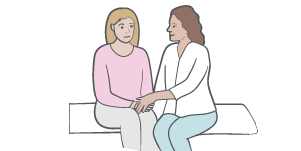Fostering Assessment
What is a Fostering Assessment?
In order to become an approved foster carer, a fostering assessment will be initialised. This will involve a number of background checks, detailed discussions about your life history – and why you want to become a foster carer.
Don’t worry though, we will be with you every step of the way to ensure that you are fully supported during this process, and we will be able to answer any questions you may have!

Fostering Assessment: What to expect
Once you have attended skills to foster training and completed your application form, you are ready to start the process of the fostering assessment. After completing your application form you will be allocated a Supervising Social Worker, who will work with you to complete a detailed assessment of your suitability to become a foster carer – known as a Form F assessment.
The assessment may seem like a daunting process, but your assessing social worker will be there throughout to highlight your skills and qualities in a supportive manner and will be on hand to answer any questions you have.
Read Our Assessment FAQS
What does the assessment involve?
The assessment is split into two parts:
In stage one, we will carry out several checks and references which will help to assess your suitability to become a foster carer.
Moving into stage two, you will have regular meetings with your Assessing Social Worker where you will have detailed discussions on a range of subjects relevant to your desire to become a foster carer. We will focus on your topics such as your childhood, your relationships, and your employment to learn more about all the reasons that have led you towards applying to be a foster carer. Stage two is also an opportunity for you to really understand the fostering role and what it will mean for you and your family.
What checks are carried out?
The assessment involves a number of checks including medical, financial, DBS (in England and Wales) or PVG (in Scotland). Because fostering involves the whole family, checks will also be carried out on other members of the household. If you are living together, your partner will be a secondary carer and as such you will both need to be involved in the application and assessment process.
What references are needed during the assessment?
We will contact a number of references for you, both personal and from your employer.
As part of the assessment process, we will also need to make contact with other significant adults in your life, which will include ex-partners and adult children – your Social Worker will explain in more detail what the checks entails and who needs to be involved.
How long does the assessment take?
This can sometimes vary on an individual basis as it will depend on a variety of factors, including how long your checks and references take to come back, any health issues or any added complications which may arise in discussions with your assessor.
However, we normally advise that once you have completed your application form and have been allocated an assessor, the assessment will take between 4 and 6 months until you go to panel for approval.
What happens next?
At the end of your assessment to become a foster carer, your assessing social worker will write a report (known as a Form F), which will then be presented to the fostering panel so that your approval can be fully considered and your fostering journey can begin.







